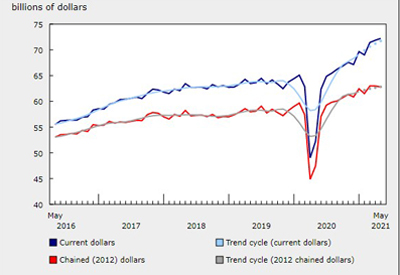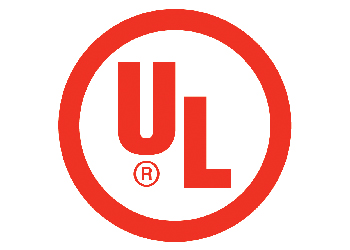An Unvarnished Message From Our Customers

Nov 14, 2021
By Frank Hurtte
As we conduct voice of customer type activities, one thing has become obvious: It’s hard to get good unbiased information from every customer type. When an opportunity arises, distributors must be all ears. Sometimes the message brings a smile to our faces, other times… well, it’s a hard pill to swallow. But still, it is the voice of the customer. Listen, ponder, think, and if appropriate, react.
Recently, a good friend and client sent me a link to a post from Reddit. My friend is a technical guy, and a distributor, so one post jumped out at him and certainly intrigued me.
This should be required reading for every distributor regardless of the product you sell.
Why? This post provides an unvarnished view of how customers see distributors. Some of the comments posted in response are painful while others will make you smile, but it must be read.
For those of you who perhaps don’t follow such things, Reddit is the seventh-largest social media site and provides a massive collection of online forums discussing everything under the sun. To give you an idea of the diversity, they even have a forum called PLC (Programmable Controllers). Most posts involve the exchange of ideas, PLC product reviews, and the swapping of programming tips. This post, however, falls into a different category.
The original post, as written, on Reddit:
Question for distributors: why do you exist in 2021?
This may seem harsh but it’s a valid question in 2021. I understand that you want to provide valuable service and application planning, etc… But 99.9% of the time I just want to buy the processor or I/O card and I have a part number in hand. I’m not looking for a relationship or application help, I just want to buy something.
Why do you guys act like gatekeepers and make me have to pick up a phone, call your office, hope to God you answer the phone (50/50 that “my salesperson” is in the office), have a conversation, and maybe, at the end of at least a 20-minute process, I have an order placed.
Just put your inventory online already! If I need help, I’ll call and ask.
It’s 2021 and the fact that this is still how we have to get things done is absolutely ridiculous. It’s got to the point that I’ve started just ordering one-off stuff from Amazon and paying a little more just to not have to deal with the headache, especially when nobody answers the phone. I’d rather spend $100 more and know it’s done NOW rather than have to keep the thought at the back of my mind to play phone tag so I can buy one little part.
Your business model is old and outdated.
Edit: yes, I know there are some distributors who allow you to order online but that’s the minority of them.
Edit 2: Hey distributors, instead of coming in here and telling us why you won’t keep up with the modern world take a look at where all of the upvotes are going. Those are your customers and competitors who chose to move forward. That’s the market speaking directly to you.
There are over 225 replies and comments as of this blog post. Here’s what I added to the mix:
First in Full Disclosure: I am a “distributor guy” and have been in the automation market for over four decades. Since 2005, I have served a consultant to distributors and manufacturers in the automation market. I carefully read through this very long string of posts and have recommended a good number of my clients read every post.
There are a few points which I feel the need to address comment on. Allow me to do so:
• I saw several posts implying distributor gross margins were in the 30-40 percent range. This is not true. For electrical distributors the average gross margin is much less than that 20 percent is probably close on “one of” sales. On negotiated prices to OEMs it can be even lower. BTW – Gross Margin is calculated this way Gross Margin Percentage = (Sell Price-Cost of goods sold)/Sell Price
• For automation distributors 67 percent of the gross margin is spent on people. The best distributors hire people who are as good as their customers and quite possibly better on a few select areas of technology.
• The profit margin after paying for people, buildings, demo units, and all the rest the margin is much smaller than the typical business. Averages 2-3 percent.
• Most reasonable distributors are moving to e-commerce. It makes sense for customers in many cases. But there are some major hurdles in the way.
1. Most distributors represent 50-300 product lines (brands) and sell close to a million SKUs.
2. The Data to populate is not readily available from many of the manufacturers. Even the largest of them (I won’t mention names here but will if you message me) are still struggling to get their full catalogue and subsequent data (catalogue, pictures, dimensions, etc.) into a format suitable for search engines.
3. Some experts estimate the cost of full useful data as being 5-10 dollars per SKU.
4. For many distributors this represents an investment equal to their annual revenue.
5. There have been several companies launched in the past five years to provide this as a service to automation distributors. Check out KYKLO a company providing this to automation distributors.
• Why do manufacturers continue to use distributors?
1. Qualified people are hard to find and manage from a distance. The only thing worse than having a bad representative is having no representative. (Check out the previously mentioned turnover and service issues with Keyence, for example.)
2. Managing remote warehouses, even those run by 3rd party logistics companies is arduous and requires constant updating.
3. Many customers have decided to pay invoices at 90 or 105 days. Distributors bear the brunt of these customers. Manufacturers insist on 30-day payment from distributors.
4. Most customers want to amalgamate orders (one stop shop). Very few manufacturers can do this.
• What can distributors do that manufacturers cannot?
1. Provide localized help to customers often without a cost.
2. Maintain backup stock for specific customers in even rural areas.
3. Smooth out the rough edges on the manufacturer’s support.
4. Sometimes, shield customers from poorly thought-out programs and products.
• A question which came up several times: Why do distributors take on fee-based services which seemingly conflict with customers (systems integrators, contractors, and others).
1. Customers often force distributors into providing services. For decades, these were mostly free. The cost of people has gone up dramatically. Charging for fees is really a gross margin replacement.
2. Distributors must sometimes “prove” the product sold is really working. They often tell the customer, if we discover it’s the product, the service is free. If you are doing something wrong, we must charge.
3. Many customers are not technically qualified. Rather than refusing the sale, it makes sense to charge.
4. Distributors sell product lines without massive customer acceptance. Turning the project over to an SI often migrates to a sale to some other product line/brand.
5. Systems Integrators (and I know this is a general comment) aren’t interested in a project which only includes a few hours.
I know this has turned into a book. But I thought it was worth commenting. If you want to explore more. Feel free to comment.
Tell me what you think. Heck, you may even want to join the discussion.
Frank Hurtte is the Founding Partner of River Heights Consulting. When he’s not stalking Reddit at 3am, Frank provides practical expert advice to knowledge-based distributors and their manufacturer partners.
Source: http://thedistributorchannel.blogspot.com/2021/11/an-unvarnished-message-from-our.html










